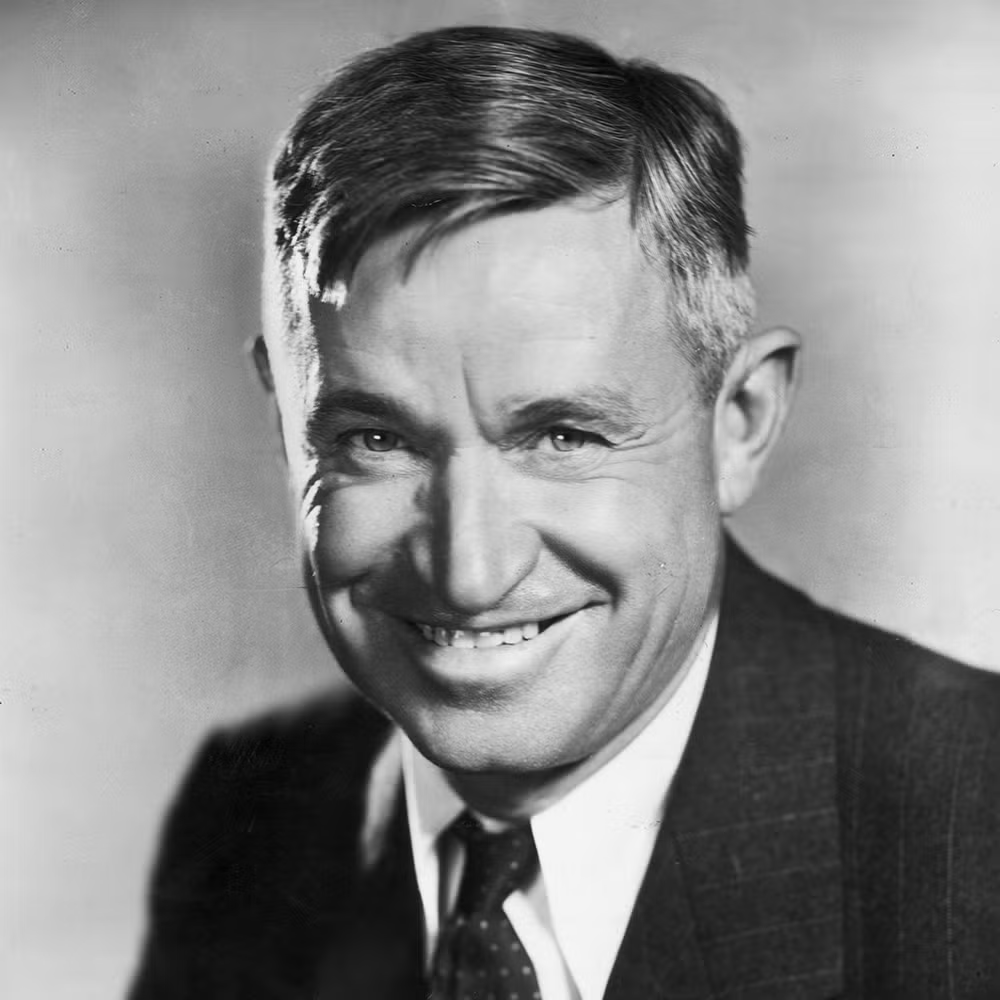
Table of Contents
Who Was Will Rogers?
Will Rogers was a multifaceted American entertainer whose career spanned vaudeville, Broadway, film, and journalism. Known for his folksy humor and insightful commentary, Rogers became one of the most beloved figures of the 1920s and 1930s, achieving global fame as both an actor and writer. His unique ability to blend wit, common sense, and a down-to-earth perspective made him a household name and a voice of the American people during a time of rapid societal change.
Early Life
Born on November 4, 1879, in Oologah, Oklahoma (then part of Indian Territory), Will Rogers was raised in a ranching family. Of mixed Cherokee descent, Rogers had deep connections to both Indigenous peoples and Anglo-American settlers in his community. As a teenager, he left Oklahoma to join traveling Wild West shows, which marked the beginning of his career in entertainment.
Career
Rogers first gained widespread attention in 1905 when he began performing a lasso act on the vaudeville circuit. His combination of skill, humor, and charm quickly endeared him to audiences, who loved his impromptu quips and down-home wit delivered while performing intricate roping tricks.
Building on his vaudeville success, Rogers transitioned to Broadway in 1916, making his debut in The Wall Street Girl. His career flourished on the stage, and he became a prominent figure in the Ziegfeld Follies, further solidifying his status as a leading entertainer. Rogers’s talents also extended to the emerging film industry, where he appeared in numerous silent films, often portraying a lovable country bumpkin navigating the complexities of modern life.
In addition to his acting career, Rogers gained national recognition as a writer. He contributed a popular column to the Saturday Evening Post, which was syndicated in newspapers across the country. His writing offered a perspective grounded in small-town values, emphasizing the honesty and integrity of working-class Americans. This resonated deeply with readers during the early 20th century, as the nation grappled with industrialization and rapid social change. His books, including The Cowboy Philosopher on Prohibition and There’s Not a Bathing Suit in Russia, became bestsellers.
By the 1930s, Rogers’s fame had grown beyond his “country bumpkin” persona, and he was recognized as a polished, professional entertainer. Legendary director John Ford collaborated with him on three notable films—Doctor Bull, Judge Priest, and The Steamboat Round the Bend—which showcased Rogers’s evolving talent. These films marked a departure from his earlier, more naïve roles, allowing him to deliver his signature humor and wisdom as a seasoned professional.
Death
On August 15, 1935, tragedy struck when the plane carrying Will Rogers crashed in Point Barrow, Alaska. Rogers died on impact, and his passing left a profound void in American entertainment. His death was mourned by millions, as his voice—one that embodied the values of humor, integrity, and common sense—was silenced far too soon.
Legacy
Rogers’s legacy was revived in 1991 with the Broadway production of The Will Rogers Follies, which focused on his time as a headliner in the Ziegfeld Follies. The show, which starred Keith Carradine, won several Tony Awards, including Best Musical, Best Musical Score, and Best Direction. Through this and other retrospectives, Will Rogers’s life and humor continue to be celebrated, ensuring that his enduring influence as one of America’s most beloved figures lives on.
